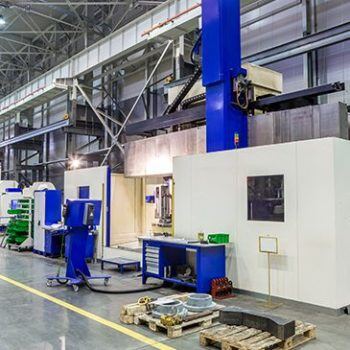
Global Shop Solutions is involved in a number of different partner integrations spanning a number of industries and third-party platforms. Whether it’s the early stages of a new integration or a comprehensive custom package based on a company’s unique wants and needs, we’ve interfaced with virtually every major platform – Salesforce, AutoCAD®, and nesting platforms like SigmaNEST® and Ncell to configurators, payroll systems, point of sale, expense tracking, machine interface, inventory and even homegrown software.
Ultimately, it is not just the broad-reaching capabilities that set an ERP software apart; it’s also the holistic approach to these integrations. Global Shop Solutions ties directly to these packages using a fully-integrated SDK. Whether through flat files, XML, direct-to-database, FTP, REST, or Web API, find an ERP software that strives to be as flexible as possible, taking full advantage of existing tools built into third-party packages.
That has been our approach. Doing so ensures our customers have an optimal experience with us and with their custom integrations. The more successful the approach, the more successful future integrations and automation will be. The better-equipped clients will be to make smart, strategic business decisions that positively impact their bottom line.
Creating Efficiency with Every Integration
Efficiency, effectiveness and budgets require an ERP system to integrate with third-party systems versus building brand new every single time. Take Salesforce as an example. Salesforce is incredibly customizable, with manufacturers importing and exporting data at a number of different points. Some want to create quotes in Salesforce, then bring those quotes into their ERP software so they can be converted into an order. Others want to handle quotes and orders in Salesforce, then bring it all into their ERP software. What the customer needs ultimately dictates what your ERP software company does and how much they lean on Salesforce tools to get it done.
Having successfully completed many third-party integrations, we see that our customers use every platform differently (ERP software and third party) so to create the most efficient manufacturing system for them, we ultimately have to start from a ‘base system’ and build a one-off integration every time.
Best Practices, Enhancing the Process & Customer Involvement
Our approach allows us to tailor each project for each individual client. As we do, we pull best practices forward when we integrate, helping reduce points of failure. We get bigger, better and more nimble with each integration. The upside is clear: by taking this route we can and do integrate with virtually anything, using any available API and resource within Global Shop Solutions to get the job done.
We ensure the customer is involved in the process from start to finish. That means simple touch points like frequent updates as well as more complex interactions, like testing internally and externally with the customer. As we’re working through integrations, we bring individual pieces to the customer to see what happens – how this piece of the puzzle works with their overarching system, how the team reacts, and how it improves the customer journey. By developing integrations with this agile methodology, the result is success. The customer is involved early on, and we can take a more iterative approach that rests on feedback and real-time, real results.
No matter the project, we drill down on what makes the most sense for our customers. That could mean we are writing a completely custom project or it could mean buying a third-party package and integrating it. We’re experts at ERP software and have found it’s not always the best approach for us to try to reinvent what’s already been perfected and proven by someone else.
The Simple Approach
Tying into any package with an open API can be an essential component of integration. And if that doesn’t exist? We engage the third party our client uses to implement the software, often using data exchange to enhance the relationship and ensure a smooth integration. And from there? We continue to maintain integrations even after the fact, even if something changes on the software side.
For many customers, a powerful piece of the integration is being able to take the wheel once it’s in motion. Most maintain the connection and integration on their own using an expert at their company to own the integration. It all boils down to arming our customers with the intel they need to make smart decisions and gain the utmost value in their integrations and automation capabilities.
Put it all together and this simple approach has enabled Global Shop Solutions to integrate with countless platforms and systems. By focusing on both custom solutions and the most efficient, effective ways to build out these integrations, we’re helping our customers drive productivity, profitability and overall enhanced workflows from start to finish.
Ryan Young is Project Manager for the Continuous Improvement Team at Global Shop Solutions. His teams use agile methodology to develop and deliver 20-30 custom development projects per month. They keep Global Shop Solutions app store, The ARC, flowing with new projects. You’ll often find his team training customers how to develop integrations on their own using GAB.